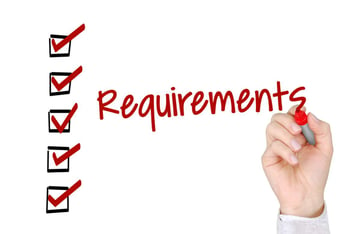7 Terrible Mistakes You're Making With a Remote Assistant
Virtual assistants can be incredible assets to your business — but that's not to say things can't go wrong.
Sometimes, they may perform below your standards, or you'd expect more. Like all professional relationships, they take time, effort, and understanding to reach a point of optimal output.
Either way, when things aren't stacking up, it may not be the fault of the remote assistant but rather an internal process issue, lack of organization, or communication errors.
This blog looks at seven common errors real estate business owners commit when locating, onboarding, and working with remote workers and some easy ways to remedy the issues.
 1. You Selected The Wrong Remote Assistant for the Role
1. You Selected The Wrong Remote Assistant for the Role
Your remote worker's performance, output, and success will all be severely limited if you choose the wrong candidate for the position.
This discrepancy could be due to a difference in working styles, experience, or even the skills and capabilities of the remote worker that you were looking for.
To begin with any new remote contractor, outline clear criteria that you're looking for in a virtual assistant. Then, schedule a video call with the top candidates, undertake a background check, review qualifications, and ask insightful questions about their previous work history, goals, and potential in the industry.
2. You Provided Insufficient Training Opportunities
One of the benefits of hiring virtual assistants for real estate is that they are highly skilled, educated, and capable of performing a range of business activities. However, this doesn't mean that they know everything.
While some may be able to hit the ground running, this is often an unfair expectation. Your business is unique, with unique processes and working styles. Therefore, skipping onboarding training can have a detrimental impact on the performance of your VA.
You may notice a disconnect between your expectations and the performance of your remote assistant without guidance and an appropriate introduction.
3. You Failed To Establish KPIs
Your team has its own set of expectations, so why shouldn't a remote worker? By establishing KPIs, you're setting a framework of expectation and performance behind each task. This puts you and the remote assistant on the same page.
Establishing fair KPIs that facilitate growth and further collaboration will help both parties move forward and boost company growth.
By setting KPIs, you can also track whether remote assistants have the tools and training necessary to complete the tasks allocated to them. After establishing KPIs, check in with your remote worker to see if they are on track and if any roadblocks are holding them back from completing their work effectively.
4. You're Not Providing The Right Tools
Communication, collaboration, and development between a real estate business and its remote workers rely heavily on the tools.
At a minimum, you should utilize project management software such as Trello or Asana, collaborative document software such as Google Docs, communication platforms such as Slack or Teams, and time-tracking software to manage project allocation.
5. Your Job Description Is Incomplete
A vague job description will lead to inadequate job applicants, building a pool of potential VAs that may not be fully qualified for the position you're filling.
Start your search with a succinct yet clear job description to remedy this. Ensure it highlights the expectations, so your new virtual team member understands their role and responsibilities when you bring them on board.
Don't forget to include details about the industry itself. For example, virtual assistants for real estate should understand the fundamentals of the real estate market and how it relates to their role.
6. You Haven't Delegated Effectively
Virtual contractors are extremely capable and often bring a whole range of skills and accreditations to the table. So, the answer to "what does a real estate virtual assistant do" is a lot.
Underutilizing these skills can waste time and resources, creating more problems and inefficient systems.
Before sourcing VAs, do a health check of your departments to uncover time sinks and roadblocks holding up your team. Then, examine these areas for virtual suitability and start delegating to your remote assistants. Your team will thank you!
7. You Started With The Wrong Platform
For ease of building a team, accuracy, and simplicity, many business leaders turn to agencies and virtual assistant platforms to help make the right choice.
However, what if you choose the wrong platform? Some platforms are out to make a quick buck, while others truly take the time to build a database of skilled, efficient, and experienced virtual assistants.
The VPM Solutions platform delivers thousands of VAs with training and experience in the real estate industry. In addition, we provide ongoing free training, so companies have a vast pool of qualified, skilled, intelligent, and capable real estate remote assistants to choose from.
 Never Make These Remote Assistant Mistakes Again
Never Make These Remote Assistant Mistakes Again
A remote worker can invigorate your real estate business and boost your performance—but only when you find the right one. Starting with VPM Solutions is an excellent way to avoid mistakes when selecting virtual assistants for your team. So get your Free Company Profile today and take your first step toward virtual assistant success.





















